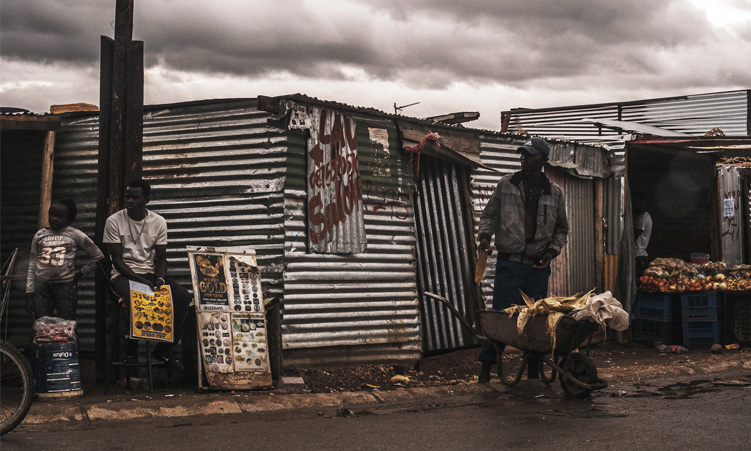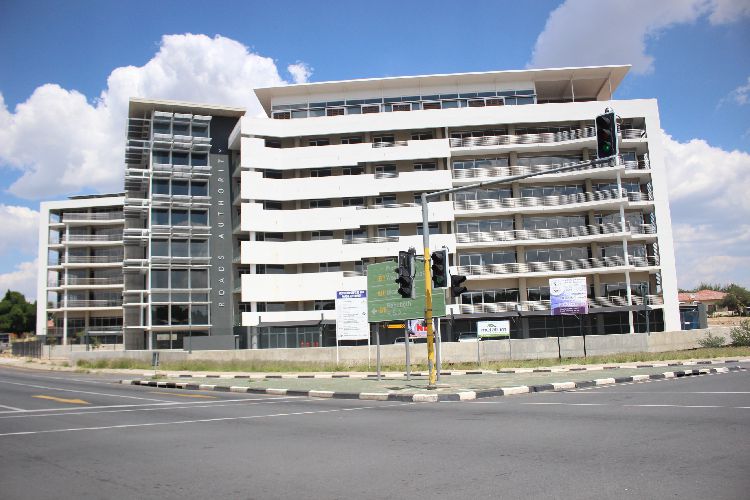Auditor general Junias Kandjeke has detailed a shocking array of irregularities and governance issues in the government’s food bank programme, where over N$143,5 million was spent since 2018.
President Hage Geingob established the food bank in 2013 to help needy and vulnerable community members with food rations under the Ministry of Gender Equality, Poverty Eradication and Social Welfare.
In his latest audit report into the affairs of the food bank, Kandjeke says the poverty eradication ministry neglected the programme, which led to numerous discrepancies and governance issues.
“The audit also found that the Ministry of Gender Equality, Poverty Eradication and Social Welfare failed to prioritise the monitoring of the food bank programme (FBP), because the ministry neglected to assess the effectiveness of the FBP on a regular basis, and at different stages, from programme initiation to completion,” Kandjeke states in the report.
The ministry only conducted an overall assessment of the programme after four years in operation, for the financial years 2016/17 to 2019/20, the report reads.
“This hampered the ministry’s ability to determine progress on the socio-economic status of the beneficiaries and to address deviations proactively,” Kandjeke says.
Last year, Geingob announced that the food bank would transition to a conditional basic income grant from May 2022.
As a result, auditors were concerned about the beneficiaries of this income grant, because grievances over the food bank recipients were not addressed.
“Auditors still recommend that the ministry should ensure the beneficiaries identified are indeed the rightful receivers of the basic income grant, as intended in the second Harambee Prosperity Plan.
“The audit further recommends that the ministry should ensure adequate and timely monitoring of the conditional basic income grant to determine progress on the socio-economic status of the beneficiaries and to address deviations proactively,” it further reads.
Meanwhile, Geingob’s spokesperson, Alfredo Hengari, has referred any questions on this report to the poverty eradication ministry despite the president initiating the programme.
“The president directed that the food bank be converted into a conditional basic income grant. This has been done and the grant was recently increased from N$500 to N$600, which is significant in the fight against urban and peri-urban poverty in food-insecure households.
The administration of the food bank fell under the ministry of gender,” he added.

DISCREPANCIES
Kandjeke’s team conducted an audit in the procurement process of food parcels and noted deviations from the criteria, as per the Food Bank Manual and Public Procurement Act.
“Therefore, the audit concluded that the ministry did not fully adhere to the act and partial adherence creates room for fraudulent activities/transactions around the food bank parcels,” the report reads.
The report states that the auditors noted a reduction in the content of the food parcels offered to the beneficiaries.
“This negatively affected the objective of the food bank programme to increase food access to the poor and most vulnerable people, thereby guaranteeing a minimum level of consumption,” it reads.
Moreover, the street committees could have been ignored despite using the formal complaint routes.
“Grievances were not consistently launched through the right channels. The audit concluded that grievances not launched or reported through the right channels might be left unattended,” it states.

COMMENTATORS
A community activist and trustee of the Economic and Social Justice Trust, Rinaani Musutua, says the government must stop calling the Harambee Cash Grant a basic income grant (BIG), which it is not.
According to Musutua, BIG is conceptually a universal grant whereby people do not have to prove that they are poor.
“The negative report of the auditor general on the failure of the food bank and other feeding schemes does not come as a surprise.
“The positive thing about converting them into a Harambee Cash Grant is that at least the government has listened to us since we’ve been advising it that giving people cash is so much better since they are offered the opportunity to choose to buy what they need the most,” she added.
Mustuua said a call to make the cash grant an unconditional BIG has fallen on deaf ears.
“It’s only 2% of the population that is benefiting from the grant, which is a drop in the ocean. The government went ahead to base the Harambee Cash Grant on the failed feeding scheme, which is discriminatory towards many Namibians and has no impact on poverty and inequality reduction.
“That is why we keep advising the government to convert the Harambee Cash Grant into an unconditional BIG of N$500/person/month for all Namibians aged 0-59,” she added.
Musutua said it is the only cost-efficient way to make a dent on poverty and inequality.
According to local political analyst Ndumba Kamwanyah, the audit report is damning and must be taken seriously.
“The audit report should be used as a lesson for other new initiatives or programmes by the ministry.
“As expected, the report paints a picture of inaccuracies, ineffectiveness and inefficiencies in the implementation of the food bank programme,” he said.
BACKGROUND
The food bank was introduced under the Harambee Prosperity Plan as a key strategy aimed at eradicating poverty and hunger in urban and peri-urban areas.
The monthly food parcels for the beneficiaries have been constituted in consideration of the nutritional value they provide, and are aimed at supplementing household food with a market value of N$550 per household.
The ministry was allocated N$5,3 billion, mainly to cater for social safety nets, which formed the first line of defence against poverty for the vulnerable members of society, especially during the Covid-19 pandemic.
Stay informed with The Namibian – your source for credible journalism. Get in-depth reporting and opinions for
only N$85 a month. Invest in journalism, invest in democracy –
Subscribe Now!








